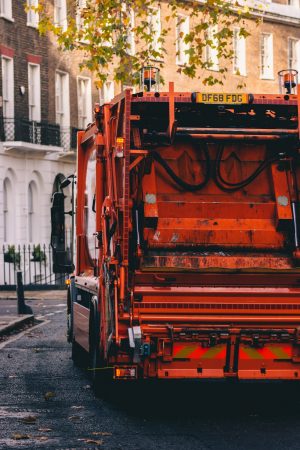Lets work together



Suite 3A, Chapel Allerton House, 114 Harrogate Road, Leeds, LS7 4NY
ukinfo@integrated-skills.com
+44 (0) 3300 888 670

The Local Government Information Unit recently described local government as an “essential agent” for achieving net zero by 2050. Services provided by individual local authorities vary along with their powers and functions, but the 333 principal local authorities and 10 combined authorities (along with the Greater London Authority) provide a huge range of services which impact on net zero.
Their influence over policy areas from social housing to transport planning, recycling operations to waste management will have huge effects on the nation’s efforts to reach our 2050 target. Here we’ll be discussing the impact of waste management operations and what will be needed from local government to ensure authorities are playing their part.
The Impact of Waste Management on Net Zero
The correlation between greenhouse gas (GHG) emissions and climate change is well established, and the waste management sector plays a huge part in controlling emission levels- especially within our cities.
Our household waste contains biodegradable, carbon-based organic matter such as kitchen and garden waste, paper and other organic materials, as well as plastics. When disposed of, this waste produces both carbon dioxide and methane (which is 21 times more powerful than carbon dioxide in its effects as a greenhouse gas). The way this waste is managed has a massive effect on the emissions produced. Depending on the methods used, we can control how these gasses will be released back into the environment. If material is broken down in open air, carbon dioxide will be released. In the absence of air, for example, through the use of landfill sites, methane is released.
Then we come to discuss the transportation issue within waste management. From the fuel used and emissions produced by the heavy vehicles needed to get the job done, to the essential route planning needed to service entire cities efficiently. Garbage trucks or bin lorries usually have diesel engines. These vehicles average around 3 miles to the gallon and “belch roughly 20 times the carbon emissions of the average American home” The Optimist Daily. They travel slowly, stopping and starting frequently and sub-par route-planning can add to the inefficiency by boosting their mileage.
What Should Local Authorities be Doing?
UK Research and Innovation spoke about what it will take for local authorities to enact meaningful change back in August 2022, and their thoughts ring just as true today: “Climate Emergency UK estimate that a third of all emissions are within the influence of local councils. Their statutory roles (housing, transport, waste and planning) will need to be fundamentally disrupted to transition to carbon neutral activities. During a time of decreasing resources and increasing demand for services this transformation will require bold choices, ground-breaking technologies, and new delivery and business models.”
While policies such as the expansion of London’s Ultra Low Emission Zone and the roll out of Low Traffic Neighbourhoods may have riled people in the local area, there are many improvements to be made that will have little to no negative impact on residents. Despite Rishi Sunak’s recent dilution of the Government’s targets, including his delay to the petrol car ban, local authorities can still ensure they are doing what they can to reallocate their budgets in line with achieving net zero.
While there has been some experimentation with electric versions of the traditional bin lorry, this is unfortunately not a ‘quick fix’. The costs involved with producing such large electric vehicles is not in line with current budgets, and the issues of battery production, the lack of a suitable charging network and the milage that can be achieved on a single charge mean that it’s not a feasible switch for now.
There are a number of trials currently underway that are testing the potential for hydrogen-powered vehicles, including this one in West Europe. Many of the trials are showing promise, but the only viable option for existing collection operations is the optimisation of the current fleet.
Route Optimisation
In a nutshell, route optimisation results in fewer miles. Fewer miles mean a reduction in emissions and lower fuel costs. Reducing a route by even a few miles can have a massive impact over time, saving gallons of fuel and reducing emissions in the process.
Geographic Information Systems-based route optimisation software minimises non-productive travel, service time and idling time. It does so by analysing the details of collection activity:
Once routes have been optimised, the information gathered can also be used in the strategic planning process. Councils are increasingly utilising route optimisation and planning software to assist them in the procurement process; informing themselves about how many vehicles they need to provide the level of service required while sticking to stringent budgets and emissions targets.
Summary
For local councils across the country, shifting sands from higher up, budget cuts and squeezes, and their responsibilities to their residents must be weighing heavily. While changes to current services should never impact negatively on vulnerable fractions of society, large-scale, innovative changes are needed to ensure we reach net zero by 2050.
Taking control of the refuse collection process and the emissions produced during this vital service will have a massive impact- especially if the majority of local authorities jump on board. Route optimisation software is budget well spent, both in terms of reducing fuel costs, and in terms of working together towards net zero.
Would you like to know more about Achieving Net Zero: The Role of Local Government Waste and Recycling Operations? Fill in your details below and let us know how we can help.
Website Designed & Built by we are CODA